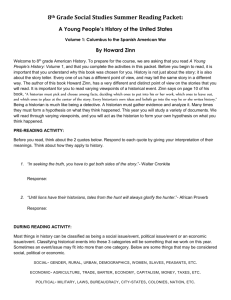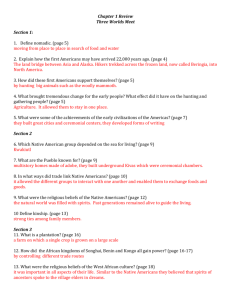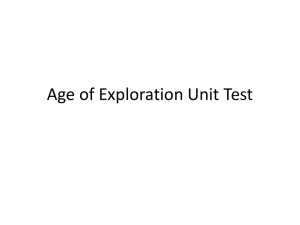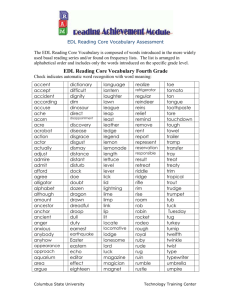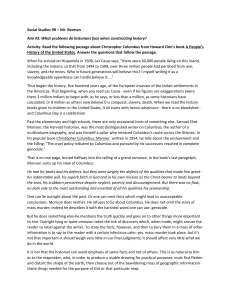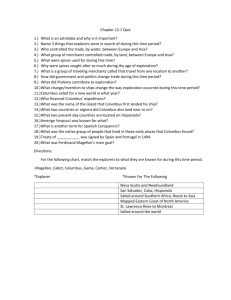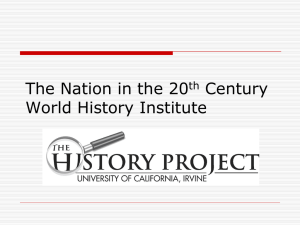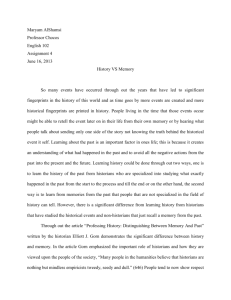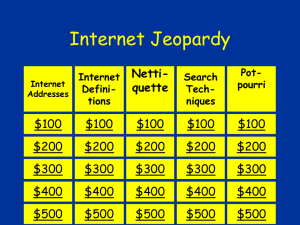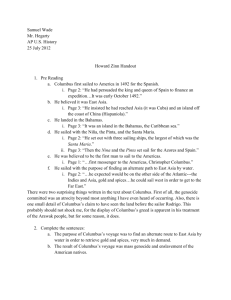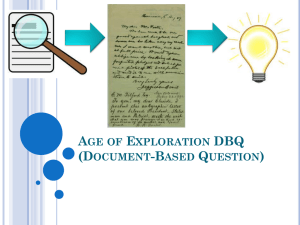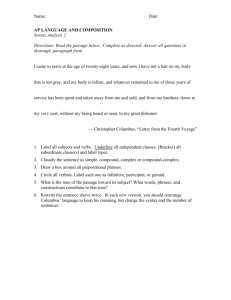Christopher Columbus Point
advertisement
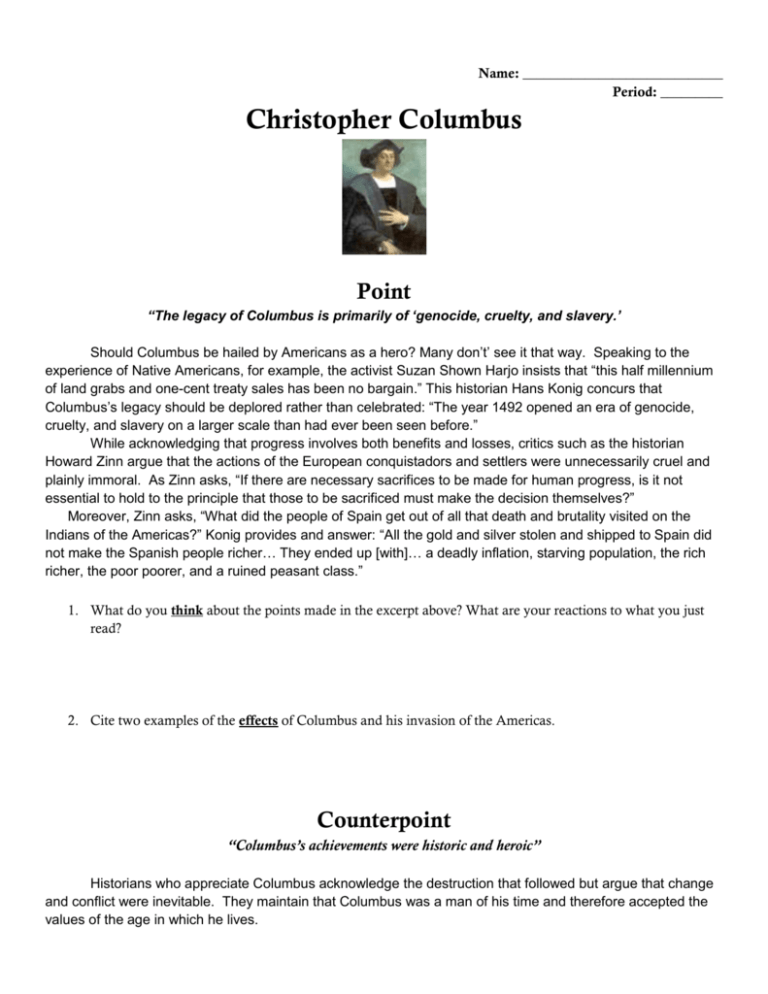
Name: _____________________________ Period: _________ Christopher Columbus Point “The legacy of Columbus is primarily of ‘genocide, cruelty, and slavery.’ Should Columbus be hailed by Americans as a hero? Many don’t’ see it that way. Speaking to the experience of Native Americans, for example, the activist Suzan Shown Harjo insists that “this half millennium of land grabs and one-cent treaty sales has been no bargain.” This historian Hans Konig concurs that Columbus’s legacy should be deplored rather than celebrated: “The year 1492 opened an era of genocide, cruelty, and slavery on a larger scale than had ever been seen before.” While acknowledging that progress involves both benefits and losses, critics such as the historian Howard Zinn argue that the actions of the European conquistadors and settlers were unnecessarily cruel and plainly immoral. As Zinn asks, “If there are necessary sacrifices to be made for human progress, is it not essential to hold to the principle that those to be sacrificed must make the decision themselves?” Moreover, Zinn asks, “What did the people of Spain get out of all that death and brutality visited on the Indians of the Americas?” Konig provides and answer: “All the gold and silver stolen and shipped to Spain did not make the Spanish people richer… They ended up [with]… a deadly inflation, starving population, the rich richer, the poor poorer, and a ruined peasant class.” 1. What do you think about the points made in the excerpt above? What are your reactions to what you just read? 2. Cite two examples of the effects of Columbus and his invasion of the Americas. Counterpoint “Columbus’s achievements were historic and heroic” Historians who appreciate Columbus acknowledge the destruction that followed but argue that change and conflict were inevitable. They maintain that Columbus was a man of his time and therefore accepted the values of the age in which he lives. However, despite the violence he unleashed, his fateful voyages produced many long-term benefits – including making possible the creation of a new democratic society. As the journalist Paul Gray notes, “Columbus’s journey was the first step in a long process that eventually produced the United States of America, a daring experiment in democracy that in turn became a symbol and a haven of individual liberty for people throughout the world.” Other historians suggest that respect is due Columbus for the sheer dimension of the change he caused. “The Columbian discovery was of greater magnitude than any other discovery or invention in human history…both because of the development of the New World and because of the numerous other discoveries that have stemmed from it,” asserts the historian Paolo Emilio Taviani. “Notwithstanding errors, egoism, and unheard of violence, the discovery was an essential…factor in ushering in the modern age.” 1. What do you think about the points made in the excerpt above? What are your reactions to what you just read? 2. Cite two examples of the effects of Columbus and his invasion of the Americas. Bias and Interpretation How do these readings illustrate the terms bias and interpretation, which we have been studying the past week? Which side do you find yourself agreeing with more? Why? How does this uncover your own personal biases?
